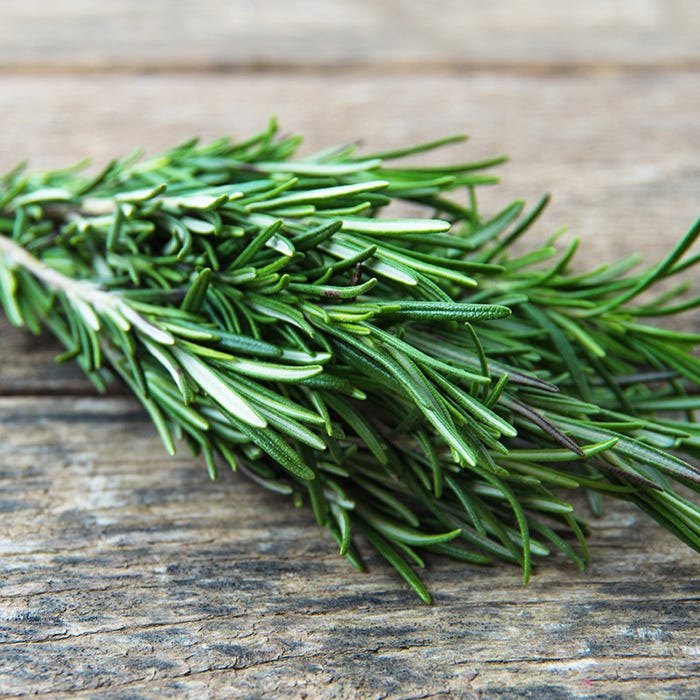Shop Sadhguru Books from Abebooks

Rosemary (Latin name ‘Rosmarinus’), which implies ‘sea dew’, is often
referred to as the ‘wonder herb’, and that is not without a reason.
While ancient Greeks believed that it boosted memory,
ancient studies also link the herb as having properties similar to
drugs licensed to treat dementia, as it helps increase a
neurotransmitter called ‘acetylecholine’.
Research conducted at the University of California, San Diego School
of Medicine, said that studies conducted on people in the age group 60
to 90 years or older, have shown that people who use this herb regularly
have had virtually no cataracts, hardly any bone fractures, excellent
heart health and low rates of Alzheimer’s disease. The older residents
who use the herb have exceptionally good microcirculation, implying
their small capillaries are not constricted even at this age, and their
heart health is as good as a teenager.
What makes Rosemary a ‘wonder herb’? Let us take a peek into the miraculous benefits and healing properties of this herb.
Memory booster
Rosemary is a native of Southern Europe, and grows wild on dry rocky hills. In India,
it is found in the Himalayas and Nilgiri hills that have dry to moist
climate. Rosemary has long been considered as the herb for remembrance.
It symbolizes loyalty, love and immortality, as it was believed to
strengthen the heart and memory. It is considered an antidote to mental
fatigue and forgetfulness. A tea made of the herb is a good natural
remedy for improving mental agility. It is even said that when crushed
rosemary leaves are inhaled with closed eyes, the mind becomes clear as
the vapour courses through the brain cells.
Improves digestion
Rosemary plant is useful in cases of atonic dyspepsia, related to indigestion
and stiffness in the stomach. It particularly helps in digestion of
starchy food, lima beans and rich meats. It is also used to relieve
flatulence.
Get Rosemary capsules from iHerb
Get Rosemary capsules from iHerb
For common cold
Rosemary oil induces copious perspiration, and hence, is beneficial
when mixed with hot water and taken as a drink during cold and chills.
The emulsion is also used as a gargle to cure sore throat. The oil shows
antibacterial activity.
Arthritis
Rosemary oil is used for vapour baths when treating rheumatism.
Heart Tonic
A few drops of Rosemary oil are taken internally as a heart
stimulant. A tincture prepared by mixing rosemary in alcohol is used as a
circulatory and cardiac stimulant.
For depression
Rosemary essential oil is not only known to boost brain power, but is
also recognized for instilling positive feelings. Its stimulating and
anti-depressant properties checks stress related disorders, nervous
exhaustion, depression, fatigue and anxiety. It can be added to warm
bathing water as a classic relaxant, as it treats physical weariness and
a lethargic attitude and helps in handling mood fluctuations.
Hair care
Shampoos and hair lotions containing the pure extract of rosemary
rejuvenate the scalp and hair, prevents dandruff and premature baldness.
A lotion can be prepared from rosemary leaves by simmering them in
water for 30 minutes, straining and cooling, and they can be used as
final hair rinse.
Get Rosemary shampoo from iHerb

Get Rosemary shampoo from iHerb

Food
Fresh tender tops of Rosemary are used for garnishing and flavouring
cold drinks, soups, pickles and other foods, while leaves are used as a
condiment. Rosemary can be dried and powdered and added to cooked food
for garnishing and as a preservative for certain food items. Rosemary
has been relished as a natural flavouring agent in Mediterranean
cuisines too.
Other benefits of Rosemary in Ayurvedic treatments
Ayurveda makes use of Rosemary essential oil for improving memory,
Halitosis, headaches, stomach upset, insect bites, skin problems like
eczema and skin infections. Ayurveda also uses Rosemary essential oil
for aromatherapy treatments.
When used as an essential oil, Rosemary is excellent tonic for skin
and hair, augments memory, fights depression, fear and fatigue, and on
the whole, is a ‘must-have’ essential oil in the medicine cabinet.
Rosemary essential oil can heal several illnesses including dental
problems, respiratory disorders, inflammation and pain, urinary
problems, gastrointestinal troubles and weak immune system.
Get Nature's Alchemy, Essential Oil, Rosemary from iHerb

Get Nature's Alchemy, Essential Oil, Rosemary from iHerb


Comments
Post a Comment